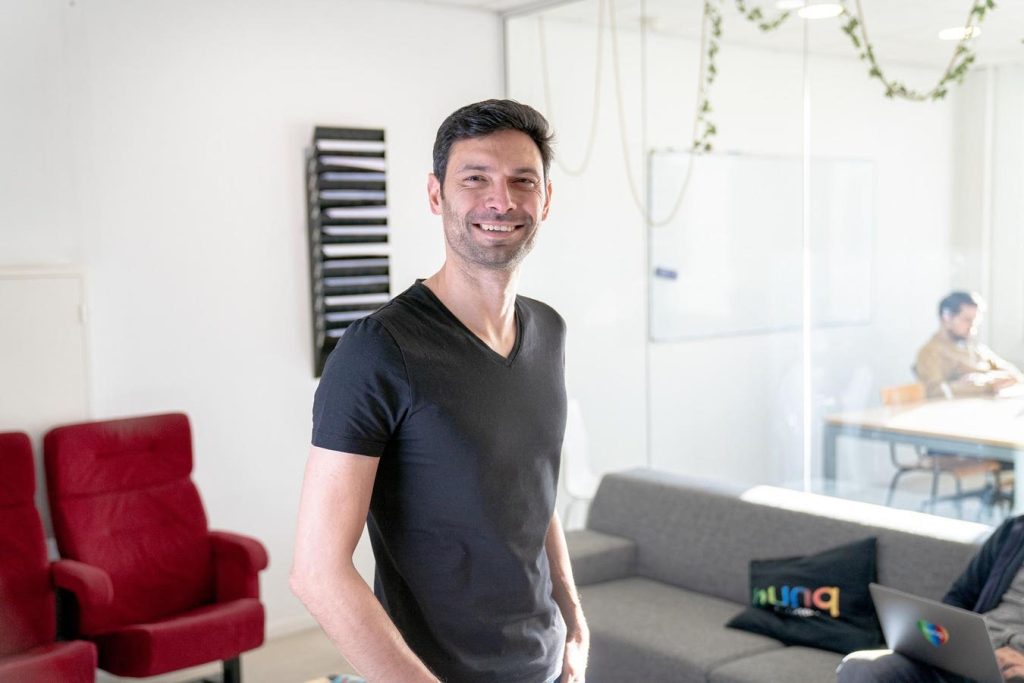The rise of digital-first challenger banks, also known as neo-banks, has reshaped the banking and financial services market in Europe. With significant investment backing, these innovative fintech companies like Monzo, Revolut, and N26 are attracting a young, mobile customer base by offering user-focused banking services that challenge traditional incumbents. Bunq, a Netherlands-based neo-bank founded in 2015, has also seen success in this space, recently raising €193 million and subsequently €128 million in investments. Founded by Ali Niknam, Bunq has focused on carving out a niche in the European banking market, achieving impressive figures such as a profit of €53.1 million in 2021.
Niknam, originally known for founding domain name provider TransIP, decided to start a bank back in 2012 after seeing issues in the existing banking system following the financial crisis, including friends struggling to run businesses or buy houses. Despite the business being an entrepreneurial risk, Niknam chose to self-fund Bunq using €44.9 million of his own money to maintain focus on the company’s vision and product development without external pressures from investors. However, after six years of self-funding the bank, Niknam sought external investment in 2021 to fund acquisitions and further product development, while maintaining the bank’s user-centric approach.
One of Bunq’s key future plans involves entering the UK market, a move complicated by Brexit’s impact on banking regulations between the UK and the EU. European fintech companies like Bunq must navigate regulatory barriers to continue serving UK customers post-Brexit. Despite these challenges, Bunq remains committed to expanding its services in the UK and is in discussions with UK regulators to obtain the necessary licenses. Offering unique features like multiple IBANs for opening accounts in various currencies, Bunq aims to attract British customers seeking digital banking options amid the post-Brexit banking landscape.
For European neo-banks like Bunq, Brexit has posed significant challenges in terms of regulatory compliance and market access. UK banks seeking to operate in Europe and EU banks targeting the UK market must adhere to new operational models and licensing requirements. As a response, companies like Revolut have set up headquarters in European countries like Lithuania to continue serving their European customer base. Despite these obstacles, Bunq remains focused on product development and innovation, with Niknam prioritizing the creation of user-centric products over financial gain.
The evolving dynamics of the banking and fintech industries have seen the emergence of digital-first challenger banks like Monzo, Revolut, N26, and Bunq, disrupting the traditional banking sector with innovative services tailored to a younger, tech-savvy customer base. With significant investment backing from venture capitalists, these neo-banks have gained traction in markets across Europe, each carving out a unique niche through user-focused approaches and innovative product offerings. As the banking landscape continues to evolve, players like Bunq navigate challenges such as Brexit-related regulatory barriers to expand their services and reach a wider customer base in the UK and beyond.
Despite the risks involved in launching a bank from scratch, entrepreneurial ventures like Bunq and its founder Ali Niknam have defied traditional banking norms by self-funding and subsequently seeking external investment to fuel growth and innovation. By focusing on user-centric product development and maintaining a clear business vision, Bunq has successfully navigated the competitive fintech landscape, achieving profitability and growth in a rapidly evolving banking market. With plans to enter the UK market and adapt to post-Brexit challenges, Bunq remains committed to offering innovative banking solutions and expanding its presence in Europe to cater to a diverse consumer market seeking digital-first financial services.


